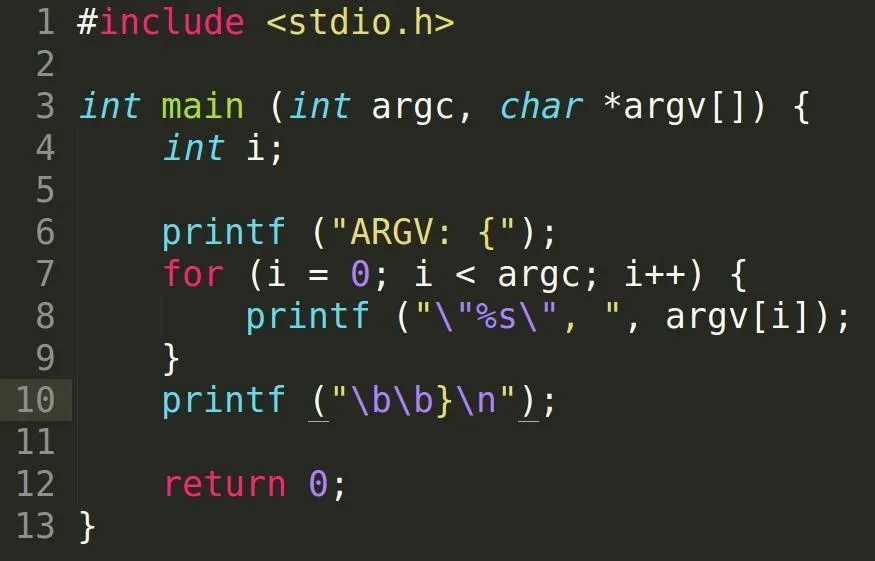
Learning how to copy argv in C can be a valuable skill to develop if you're interested in programming. argv is a special type of array that stores command line arguments that are passed to a program. Copying argv is a common task that is often used in a variety of programming scenarios, such as when building a shell or writing a program that requires command-line arguments to function correctly.
What Is argv in C?
argv is a special type of array that stores command line arguments that are passed to a program when it is executed. This array is available to all C programs and is usually declared as an array of strings, with each string representing an individual argument.
How to Copy argv in C
To copy argv in C, you will first need to create a new array to store the copied arguments. This array should be declared as an array of strings, with each string representing an individual argument. Once the array is declared, it can be populated with the contents of argv using a simple for loop. The following code snippet shows an example of how to copy argv in C:
//declare array to store copied arguments char ** copiedArgv; //allocate memory for array copiedArgv = malloc(argc * sizeof(char *)); //copy arguments from argv to copiedArgv for (int i = 0; i < argc; i++) { copiedArgv[i] = malloc(strlen(argv[i]) + 1); strcpy(copiedArgv[i], argv[i]); } Once the array has been populated, the copied arguments can be used as needed. For example, they could be passed to a function or used to modify the program's behavior based on the command line arguments.
People Also Ask
What Is the Syntax for Copying argv in C?
The syntax for copying argv in C is as follows:
//declare array to store copied arguments char ** copiedArgv; //allocate memory for array copiedArgv = malloc(argc * sizeof(char *)); //copy arguments from argv to copiedArgv for (int i = 0; i < argc; i++) { copiedArgv[i] = malloc(strlen(argv[i]) + 1); strcpy(copiedArgv[i], argv[i]); } What Are the Benefits of Copying argv in C?
The primary benefit of copying argv in C is that it allows you to use the command line arguments in different ways. For example, you can modify the program's behavior based on the command line arguments or pass them to a function. In addition, copying argv can also be used to create a more secure program, as it prevents the command line arguments from being changed or modified.
What Is the Difference Between argv and argc in C?
The difference between argv and argc in C is that argv is an array of strings that stores the command line arguments that are passed to a program, while argc is an integer that stores the number of command line arguments that are passed to the program.
How Do You Access argv in C?
To access argv in C, you can use a simple for loop. The following code snippet shows an example of how to access argv in C:
for (int i = 0; i < argc; i++) { printf("argv[%d] = %s\n", i, argv[i]); } In the above code snippet, the for loop iterates over the elements of argv and prints the value of each element.
How Do You Free argv in C?
To free argv in C, you can use a simple for loop. The following code snippet shows an example of how to free argv in C:
for (int i = 0; i < argc; i++) { free(argv[i]); } In the above code snippet, the for loop iterates over the elements of argv and frees the memory associated with each element.
Learning how to copy argv in C can be a valuable skill to develop if you're interested in programming. Copying argv allows you to use the command line arguments in different ways, such as modifying the program's behavior based on the command line arguments or passing them to a function. It also allows you to create a more secure program, as it prevents the command line arguments from being changed or modified. Finally, it is important to remember to free argv when it is no longer needed in order to avoid memory leaks.
Cscript Command Line Arguments Example

C - argc, argv - DEV Community 👩💻👨💻

Solved 1 from sys import argv 3 script, input file argv 4 5 | Chegg.com
